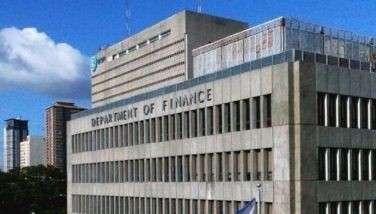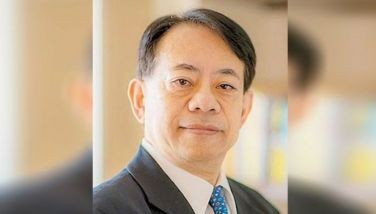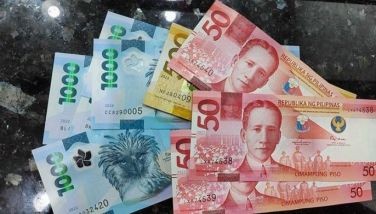Domingo Lee: Embarassment to P-Noy and nation

I believe that the point has been reached for President Aquino to pull the plug on his nominee Domingo Lee for the Ambassadorship to Beijing following another disastrous performance at his confirmation hearing. That confirmation appears to be on life support. Senator Osmeña was reported as saying that Lee became at times incoherent in responding even to simple questions that were confirming information he had provided in his resume. Other Senators and Congressmen are lining up for a crack at Lee and it could snowball. The President is better off spending precious political capital on more important matters in his legislative agenda than in persisting in sending a man that is quickly unraveling as someone clearly past his prime and out of his depth to be handed the responsibility of being the man on the ground in Beijing. It does not help that he is reported to be a card carrying Kuomintang Party member – which if true – surely makes for a galling insult to Chinese sensitivities given about the appropriate status of Taiwan from their point of view.
Domingo Lee, if he is to continue to live up to his image of being the tried and tested friend of the Aquino family through thick and thin, must once again show his loyalty by sparing the President from this increasingly embarrassing spectacle. Even if by the President’s sheer will he is confirmed, he would be ineffective in Beijing who are all too keenly aware of his limitations and the level of esteem he commands in Manila.
While we dilly-dally in sending a capable – or at least a less controversial – envoy to Beijing, new developments arise almost daily to further add new wrinkles to what is already a complicated Philippine-China bilateral relations. Those relations have yet to recover from a series of issues including the controversial mega projects as the North Rail, NBN-ZTE, large scale farming, and the execution of Filipino drug mules with more lined up for a potentially similar fate. To China, aborted projects such as the NBN-ZTE network and large scale agriculture projects or ongoing but controversial projects such as the North Rail are legitimate and undertaken with good intentions on their part. They resent the fact that they have become embroiled in domestic politics in which they are cast as willing accomplice if not instigator of nefarious schemes aimed at ripping off the Filipino people. I do not mean to excuse anyone from culpability here. I am simply saying that this is how it is viewed from Chinese eyes and the reason why they have taken the manner in which we have dealt with these projects as an affront.
But it is the dispute over competing claims to territories in the South China Sea (or the West Philippine Sea) that now seems to define the tenor of that relationship notwithstanding assertions by both sides that these can be put aside and that it would be business as usual in the conduct of other aspects of our relationship, notably on the commercial side.
President Obama’s visit to Australia which was meant to demonstrate America’s commitment to remaining a Pacific power has surely added a new dimension that the Chinese leadership will have to react to, given that they face domestic pressure to assert China’s rise as a global power. In a clear message to China, President Barack Obama said, a day after announcing that the US would send military aircraft and up to 2,500 Marines to northern Australia that US will maintain its military presence in the Asia-Pacific region despite budget cuts, that America was “here to stay” as a Pacific power. Closer to home, Secretary of State Hillary Clinton declared America’s commitment to supporting the Philippines in its efforts in finding ways to maintain peace in its disputed territorial boundaries, following ceremonies celebrating the 6oth anniversary of the US-Philippine Mutual Defense Treaty.
The Philippines – like all of Asia’s small and medium-sized countries –have long seen themselves caught between China’s economic might and the security blanket provided by the US as China grows more aggressive in its territorial claims, these countries have edged closer to Washington for shelter.
Now the US seems to be countering even China’s attraction as the primary generator of economic opportunities by declaring that its growth was achieved not by fair means – including an undervalued Renminbi – and that a new alliance of economies under the Trans-Pacific Partnership (TPP) offers a better alternative. The rhetoric about whether China plays by the rules in achieving its phenomenal growth is expected to reach fever pitch as the US Presidential elections draws near. This double barreled assault – on the economic and on the security dimensions of relations with China - has evoked a sharp reaction from China but it remains to be seen where this will ultimately lead to.
China itself is undergoing a leadership transition which will culminate in November 2012 with the selection of a new President to succeed Hu Jin Tao. The chosen successor will have to prove his credentials in upholding China’s pride of place in the world. This may mean a more unrestrained assertion of their claims to the South China Sea if push comes to shove. The recent Bali meetings may have produced an agreement on a firm deadline for the completion of the drafting of a Code of Conduct (CoC) but it has not resolved the issue of over which territory the CoC would apply to. Reaction to the Philippine effort to define the boundaries for the CoC via a Zone of Peace, Freedom, Friendship and Cooperation (ZoPFF/C) was at best lukewarm. Meantime, China still maintains its position that settlement of disputes be done bilaterally.
These are challenging times in our region and our policy towards China and the US will have to be honed to near perfection if we are to navigate the tricky waters between sustaining the momentum for economic growth and maintaining our sovereignty. An accurate reading of what is going on Beijing and Washington is essential to getting this right. No one would be in a better position to do so than our men in both capitals. Ambassador Cuisia seems to be in the thick of things in Washington and reading it correctly. Not only do we not have a man in Beijing but the candidate for the position does not give us comfort. Now is the time for nominee Lee to be man enough to do the right thing. It is not a question of competence – he would do well I am sure in another post. But Beijing requires someone in the prime of his life – the post is one of the most demanding and certainly the extent to which the job can be delegated has its limits – and one who does not carry the needless baggage of being closely associated with the other side of the Taiwan Strait.
- Latest
- Trending

































